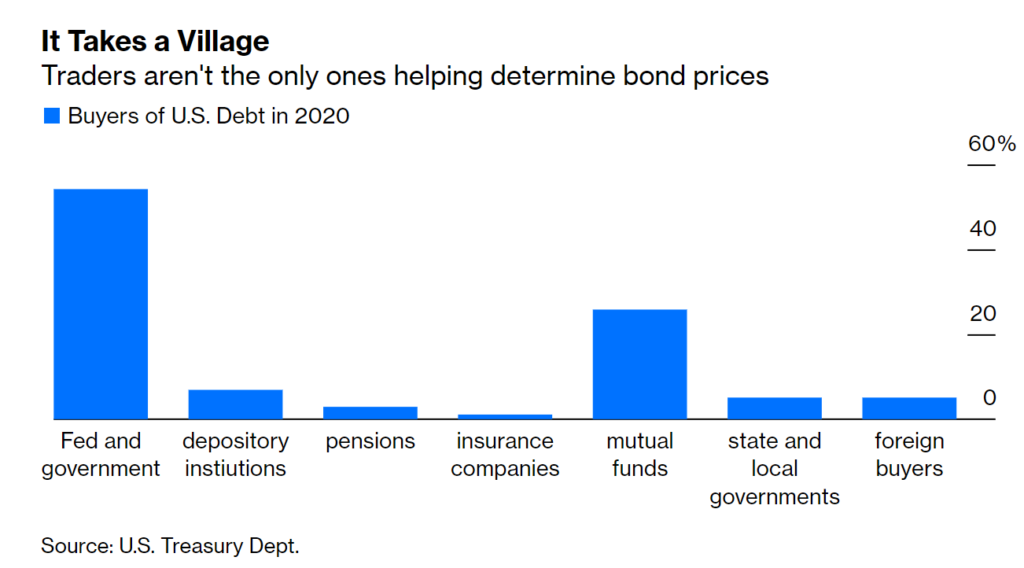Graphic:

Excerpt:
Historically, bond yields have not been very good at predicting inflation.
In the last 70 years, bond yields rarely rose ahead of inflation, going up only after inflation takes hold. One study indicated that past inflation trends were a better predictor of bond rates than what future inflation turned out to be.
Does this mean bond traders are wrong? Not necessarily. It may just reflect that inflation is unpredictable and bond traders don’t know any more about the future than the rest of us. All they have is the past data and current prices to make their predictions, too. So when inflation suddenly spikes — as it has in the past — bond traders are as surprised as everyone else.
Author(s): Allison Schrager
Publication Date: 18 June 2021
Publication Site: Bloomberg
